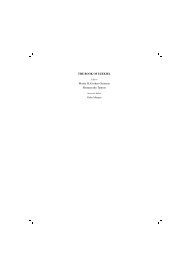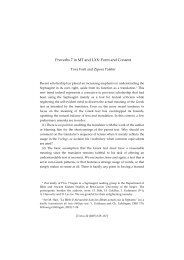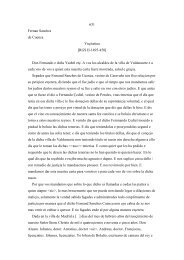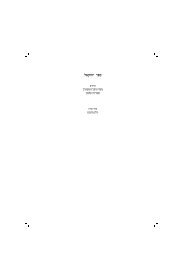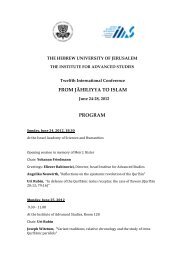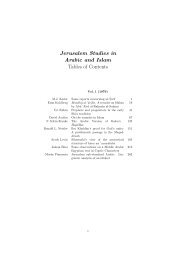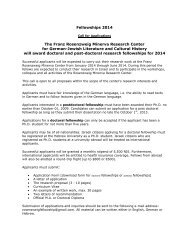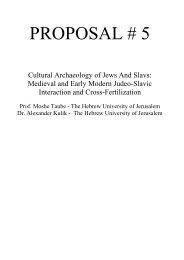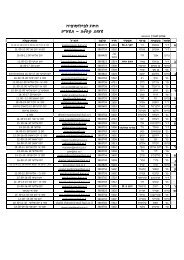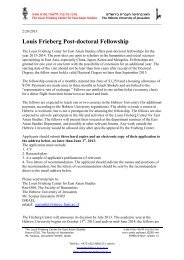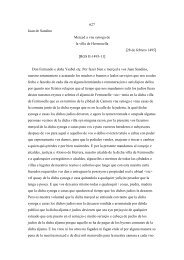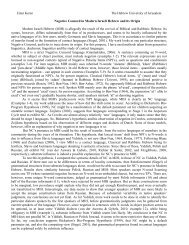Baber Johansen
Baber Johansen
Baber Johansen
You also want an ePaper? Increase the reach of your titles
YUMPU automatically turns print PDFs into web optimized ePapers that Google loves.
28<br />
between the contingent world and its non-contingent, eternal creator on<br />
the results established by the theologians.<br />
The indicants of the law, such as the interpretation of the QurÞÁn, the<br />
Prophet’s normative practice, and the normative application of analogy<br />
are, therefore, the domain of the jurists. The jurists’ consensus is,<br />
according to most legal scholars, the highest source of the law, because it<br />
is supposedly infallible and, once established, cannot be abrogated. The<br />
question who should participate in the consensus is, therefore, of the<br />
utmost importance for the autonomy of the discipline and the forms of<br />
reasoning to be applied in it. From the eleventh century on, many legal<br />
texts exclude the theologians from the jurists’ consensus.<br />
The eleventh-century Transoxanian Íanafī jurist SarakhsÐ (d. 1090)<br />
writes in his work on legal methodology:<br />
He who is a theologian and does not know uÒÙl al-fiqh and the<br />
legal proofs for [the validity] of the norms, his statement is not<br />
taken into account for the consensus. This [statement] is<br />
transmitted as the position of KarkhÐ [d. 340H/951 C.E., a famous<br />
Íanafī authority in Baghdad, one of the leading Hanafi jurists of<br />
the tenth century]. In the same way, the statement of those who<br />
are transmitters of ÎadÐth and who have no insight in the aspects<br />
of reasoned opinion (raÞy) and the methods of developing legal<br />
standards are not taken into account for the consensus (ijmÁÝ).<br />
Because these scholars, as far as the construction of legal norms is<br />
concerned, are like ordinary people and one does not take into<br />
account the statement of the ordinary man in the consensus of the<br />
scholars of the period, because he has no guidance concerning the<br />
norm that needs to be recognized. He is, in fact, like a mentally ill<br />
person, so that one does not take into account his dissent. 82<br />
Ibn ÝAqÐl develops the same reasoning on a more general basis. He<br />
writes:



